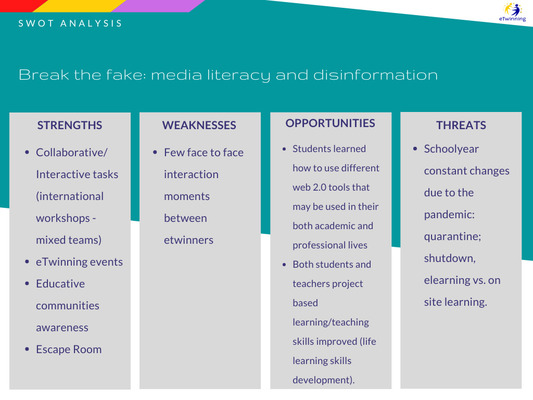
The project proved to be extremely interesting in several aspects:
Students developed competence in linguistic communication – they worked with European peers, interacted within forums and performed collaborative tasks (videos on media literacy and fake news within mixed teams | webinars and workshops within school teams).
Students improved their mathematical competence and basic competences in science and technology – they have drawn evidence-based conclusions and adopted a critical attitude towards the fake news phenomena.
They have improved their competence in personal autonomy and entrepreneurship – as they took an active part in the learning process: during the webinars and workshops, students became active and autonomous learners, taking their own decisions, being innovative and taking risks (by interacting with external guests, other schools’ students and teachers, etc.).
Most participants considered the project quite innovative and considered that the technological tools used will help them in their academic and professional lives.
The aspect to be improved would be the face-to-face interactions, which students felt to be missing. It is an aspect that will be considered in the future.
Due to very different phases of each school calendar (in some cases altered according to the epidemiological situation of each country/region), the activities/plan had to undergo some changes. Schools adapted the layout to their reality and sometimes activities were taken into action in different stages. However, the mixed team tasks were possible by using the forum and chat apps. Also, the Escape Room was considered a success by most students.